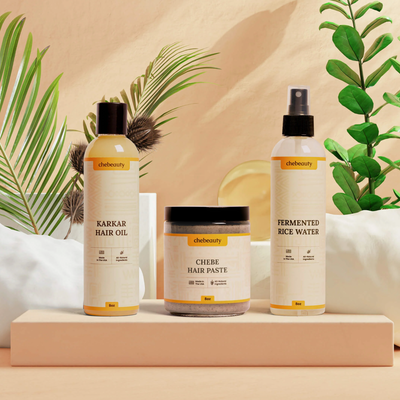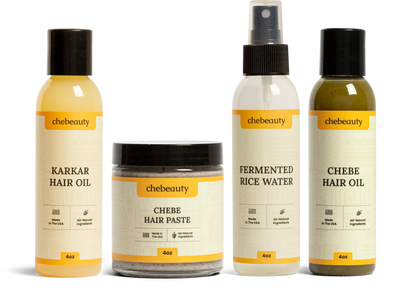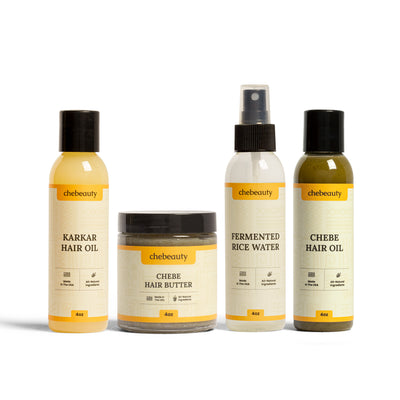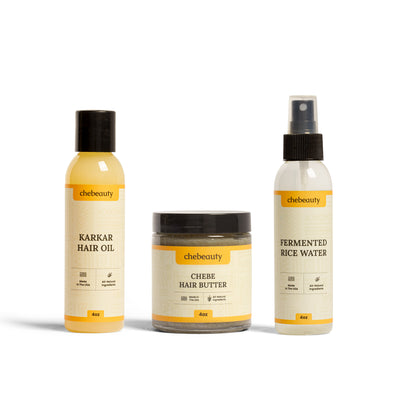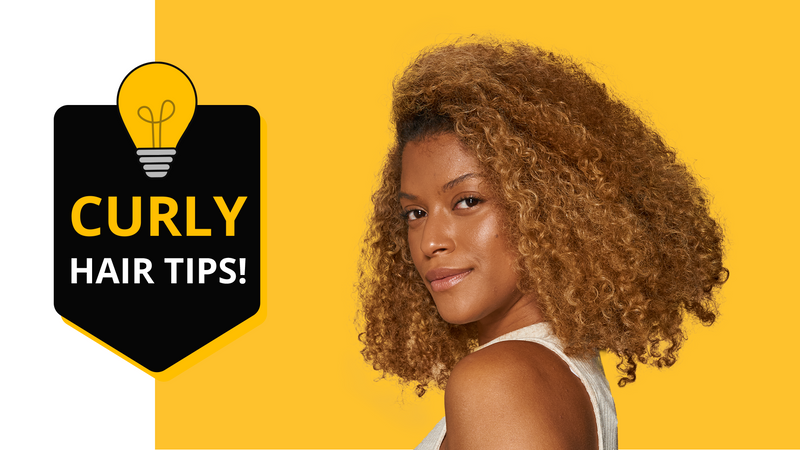Of all the hair types, beautiful and unique coily hair can be the most challenging to navigate. The fact that the majority of products on the hair care market aren’t geared towards coily hair also doesn’t help. That’s why we’ve decided to put together this comprehensive guide, where we will cover invaluable insights, techniques, and product recommendations tailored specifically for those with this unique hair texture.
Brief Overview of Coily Hair
Coily hair is characterized by its tight curls that form an intricate pattern close to the scalp. This hair type often requires special care due to its susceptibility to dryness, breakage, and shrinkage. Understanding the structure and behavior of coily hair is crucial in devising an effective care routine.
Importance of Proper Care for Coily Hair
Proper care for coily hair goes beyond aesthetics; it is essential for maintaining its health and vitality. Neglecting coily hair can lead to issues such as excessive dryness, frizz, and damage to the hair shaft. By implementing a tailored care routine, women can embrace and celebrate the natural beauty of their coily locks.
Purpose of the Guide
The purpose of this guide is to empower women with coily hair to embrace their natural texture and embark on a journey of self-care and confidence. Whether you're a newcomer seeking guidance or someone looking to further refine your routine, this guide is designed to provide valuable information, practical tips, and product recommendations to help you achieve your hair goals. Join us as we unlock the secrets to radiant, healthy coily hair!
Understanding Coily Hair
Characteristics of Coily Hair
Coily hair encompasses a diverse spectrum of textures, often classified into subcategories such as 4A, 4B, and 4C, based on the tightness of the curl pattern. Understanding the nuances of each coily hair type is essential for tailoring a personalized care routine that addresses specific needs, which is why we delve into each subtexture in more detail below.
Type 4A Hair
Type 4A hair features tightly coiled curls with a defined "S" pattern. This hair type tends to have more elasticity and less susceptibility to breakage compared to tighter coily textures. However, it still requires adequate moisture and gentle handling to maintain its health and definition.
Type 4B Hair
Type 4B hair is characterized by a tighter coil pattern with less defined curls and more of a "Z" or zigzag shape. This hair type often experiences significant shrinkage and requires extra care to prevent tangling and breakage. Regular deep conditioning and protective styling are essential for maintaining moisture and minimizing damage.
Type 4C Hair
Type 4C hair represents the tightest coil pattern within the coily hair spectrum. It typically lacks a defined curl pattern and may appear more densely packed. Type 4C hair is highly prone to shrinkage, making it challenging to manage and style. Proper hydration and gentle detangling techniques are crucial for preserving the integrity of 4C hair and preventing breakage.
Common Challenges Faced by Coily Haired Women
Despite its unique beauty, coily hair comes with its own set of challenges. One of the most common issues is moisture retention. The natural oils produced by the scalp have a harder time traveling down the length of coily hair strands due to their twists and turns, leading to dryness and brittleness.
Additionally, coily hair is prone to tangling and knotting, especially when not properly detangled or protected during sleep. This can result in breakage and damage to the hair shaft. Furthermore, shrinkage—a natural phenomenon where coily hair appears significantly shorter than its actual length when dry—can be frustrating for many women who desire length retention and styling versatility.
How to Take Care of Coily Hair
Choosing the Right Shampoo and Cleansing
Selecting the appropriate shampoo is crucial for maintaining the health and vitality of coily hair. Look for gentle formulas that won’t harm your hair and scalp, strip away natural oils and contribute to dryness, even better if they have naturally hydrating ingredients like coconut oil, shea butter, or Chebe powder to help combat dryness and retain moisture in coily hair strands.In particular, Chebe Shampoo, with its deep moisturization and damage prevention qualities is a great option for consistent coily hair treatment.
Proper Washing Techniques
When washing coily hair, it's essential to handle it with care to minimize tangling and breakage. Begin by thoroughly wetting the hair with lukewarm water to open the hair cuticles and allow for effective cleansing.
Apply a small amount of shampoo to the scalp and gently massage it using your fingertips, focusing on the roots to remove dirt, oil, and product buildup. Avoid vigorously rubbing the hair strands, as this can lead to friction and damage. Instead, allow the shampoo to cleanse the length of the hair as you rinse it out.
Frequency of Washing
The frequency of washing coily hair varies depending on individual preferences and lifestyle factors. While some women may prefer to wash their hair weekly, others may find that washing every two weeks or even less frequently works best for them. Overwashing can strip away natural oils and lead to dryness, so it's essential to find a balance that maintains cleanliness without compromising moisture levels.
Pay attention to how your scalp and hair respond to different washing frequencies, and adjust your routine accordingly. In between washes, you can refresh your hair and scalp with a co-wash (cleansing conditioner) or simply rinse with water and apply a leave-in conditioner to maintain hydration.
Conditioning
Importance of Conditioning for Coily Hair
Conditioning is a fundamental step in coily hair care as it helps replenish moisture, improve manageability, and enhance the overall health of the hair. Coily hair tends to be naturally dry due to its structure, making it more susceptible to breakage and damage. Conditioning helps to hydrate and soften the hair, making it easier to detangle and style while reducing the risk of breakage and split ends.
Best Conditioners for Coily Hair
When choosing a conditioner for coily hair, opt for rich, creamy formulas that provide intense hydration and nourishment. Look for ingredients like shea butter, coconut oil, argan oil, and Chebe powder which help moisturize and strengthen the hair strands.
Leave-in conditioners are particularly beneficial for coily hair, as they penetrate deeply into the hair shaft to provide long-lasting hydration and repair damage. This is especially true if you pair an equally moisturizing and gently shampoo and leave-in conditioner such as Chebe Leave-In Conditioner, meaning the treatment will be more effective quicker.
Moisturizing
Importance of Moisture Retention for Coily Hair
Moisture retention is paramount for maintaining the health and appearance of coily hair. Coily hair has a tendency to lose moisture more quickly than other hair types due to its structure, leading to dryness, frizz, and breakage. Proper moisturizing helps to hydrate the hair strands, improve elasticity, and enhance curl definition, resulting in softer, more manageable hair.
Best Moisturizers for Coily Hair
When it comes to moisturizing coily hair, opt for products that provide long-lasting hydration without weighing the hair down. Look for moisturizers enriched with ingredients like glycerin, aloe vera, and jojoba oil, which help attract and retain moisture in the hair shaft. Hair butter and hair pastes are excellent options for keeping coily hair moisturized throughout the day. A great option for a naturally moisturizing, long-lasting formula would be Chebe Hair Butter, which is sure to become staples in any coily-haired girl’s routine.
Detangling
Gentle Detangling Methods
Detangling coily hair requires patience and gentle handling to prevent breakage and minimize damage. Start by dividing your hair into sections to make the detangling process more manageable. Use your fingers or a wide-tooth comb to gently separate knots and tangles, starting from the ends and working your way up to the roots. Apply a detangling spray or better yet, Rice Water, to help soften the hair and reduce friction during detangling.
Tools for Detangling Coily Hair
When detangling coily hair, it's essential to use the right tools to minimize breakage and damage. Opt for a wide-tooth comb or a detangling brush with flexible bristles that glide through the hair without causing snagging or pulling. Avoid using fine-tooth combs or brushes with stiff bristles, as they can cause breakage and damage to coily hair strands.
Importance of Patience in Detangling
Patience is key when detangling coily hair, as rushing the process can lead to unnecessary breakage and damage. Take your time and work through each section of hair methodically, gently releasing knots and tangles without force. If you encounter stubborn tangles, apply more conditioner or detangling spray and use your fingers to carefully tease them apart. Remember that detangling coily hair is a gradual process that requires patience and care to achieve optimal results.
Styling
Protective Styling Options
Protective styling is essential for maintaining the health and length of coily hair by minimizing manipulation and reducing exposure to environmental stressors. Popular protective styles for coily hair include braids, twists, buns, and updos, which help to keep the hair tucked away and shielded from damage. Protective styles not only promote hair growth and length retention but also offer versatility and convenience for everyday wear.
Heat Styling Precautions
While heat styling can be tempting for achieving sleek and polished looks, excessive use of heat can lead to damage and weaken coily hair strands. To minimize the risk of heat damage, limit the use of heat styling tools such as flat irons, curling wands, and blow dryers.
When heat styling is necessary, use a heat protectant spray or serum to create a barrier between the hair and the heat source, and always use the lowest possible heat setting. Additionally, consider incorporating heat-free styling techniques like twist-outs, braid-outs, and bantu knots to achieve beautiful curls and waves without the use of heat.
Tips for Maintaining Healthy Coily Hair
Protective Styling Tips
Protective styling is not only a great way to preserve the health of coily hair but also to promote growth and length retention. When opting for protective styles such as braids, twists, or updos, ensure that your hair is adequately moisturized and sealed with a nourishing oil or hair butter before styling. Avoid styles that cause excessive tension on the hairline or scalp, as this can lead to traction alopecia. Additionally, remember to give your hair and scalp regular breaks between protective styles to prevent stress and breakage.
Trimming and Maintaining Hair Length
Regular trims are crucial for maintaining the overall health and appearance of coily hair. Trimming helps to remove split ends and prevent further damage, allowing the hair to grow longer and stronger. Aim to trim your hair every 8-12 weeks or as needed, focusing on areas that are prone to breakage or split ends. When trimming your hair, use sharp scissors and cut only small amounts at a time to avoid over-cutting.
Importance of Scalp Care
Scalp care is paramount for the overall health and vitality of coily hair, as it directly impacts the condition of the hair follicles and the quality of hair growth. Utilizing specialized products like Rice water and Karkar oil can significantly enhance scalp health. Rice water, known for its rich nutrient content including amino acids, vitamins, and minerals, nourishes the scalp and promotes hair growth by strengthening the hair shaft and improving the condition of the scalp.
Similarly, Karkar oil is renowned for its moisturizing and anti-inflammatory properties. When applied to the scalp, Karkar oil helps soothe irritation, reduce dandruff, and promote a healthy scalp environment conducive to optimal hair growth. Incorporating these targeted scalp care products into your hair care routine can lead to stronger, healthier hair from the roots to the tips.
Addressing Common Coily Hair Concerns
Dryness and Breakage
Dryness and breakage are prevalent concerns among women with coily hair due to its structure, which makes it more prone to moisture loss. To combat dryness, focus on maintaining hydration by using moisturizing products such as leave-in conditioners, oils, and hair butters. Incorporating deep conditioning treatments into your routine can help replenish moisture and strengthen the hair shaft, reducing the risk of breakage. Chebe Powder products are also highly effective remedies for combating dryness and promoting hair strength and elasticity. These natural products, originating from Chad, are enriched with ingredients like shea butter, herbs, and oils, which deeply nourish and protect coily hair, aiding in moisture retention and reducing breakage.
Frizz Control
Frizz is another common issue experienced by those with coily hair, often caused by factors such as humidity, friction, and lack of moisture. To control frizz, prioritize moisture retention by using hydrating products and sealing the hair with an oil or butter. Incorporating rice water into your hair care routine can also be highly beneficial for frizz control. Rice water is rich in amino acids and vitamins, which help to smooth the hair cuticle, reduce frizz, and enhance shine. Using Rice water as a final rinse or incorporating it into your leave-in conditioner can help tame frizz and leave your coils looking smooth and defined.
Scalp Issues
Scalp issues such as dandruff, itchiness, and inflammation can impact the health and comfort of women with coily hair. After all, without a healthy scalp, it’s really challenging to achieve overall hair health. Proper scalp care is essential for addressing these concerns, starting with regular cleansing and exfoliation to remove buildup and maintain a healthy scalp environment.
Incorporating scalp treatments like Karkar oil, a well-known anti-bacterial and anti-inflammatory treatment, can help alleviate symptoms of dandruff and soothe irritation. Massaging Karkar oil into the scalp can help nourish and condition the scalp, promoting a balanced scalp environment and healthy hair growth.
Heat Damage
Heat styling tools can be damaging to coily hair, leading to dryness, breakage, and weakened hair strands. To minimize the risk of heat damage, limit the use of heat styling tools and always use a heat protectant spray or serum before styling. When using heat, opt for the lowest possible temperature setting and avoid direct heat exposure for prolonged periods. Rosemary elixir is a fantastic remedy for addressing heat damage and promoting hair health.
Rosemary is known for its stimulating properties, which can help improve circulation to the scalp, strengthen the hair follicles, and reduce hair loss. Incorporating rosemary elixir into your hair care routine can help repair and protect coily hair from the damaging effects of heat styling.
Conclusion
Recap of Key Points
In this comprehensive guide, we have explored the intricacies of caring for coily hair, covering everything from understanding its unique characteristics to addressing common concerns and implementing effective care routines. We've discussed the importance of proper cleansing, conditioning, and moisturizing, as well as the significance of scalp care and protective styling. Additionally, we've highlighted specific products and remedies, such as Chebe treatments, Rice water, Karkar oil, and Rosemary elixir, that can help address various coily hair needs.
Encouragement for Embracing and Caring for Coily Hair
Embracing and caring for your coily hair is not just about aesthetics; it's a journey of self-discovery, self-love, and empowerment. Your natural hair texture is unique and beautiful, and by embracing it, you are celebrating your identity and heritage. Embrace the versatility of your coily hair and experiment with different styles, products, and techniques to discover what works best for you. Remember that caring for your coily hair is a journey, and it's okay to have setbacks along the way. Be patient with yourself, stay committed to your hair care routine, and celebrate the progress you make along the way.















